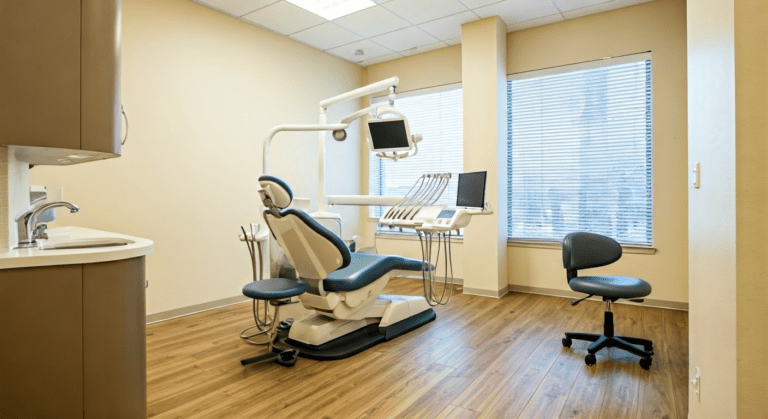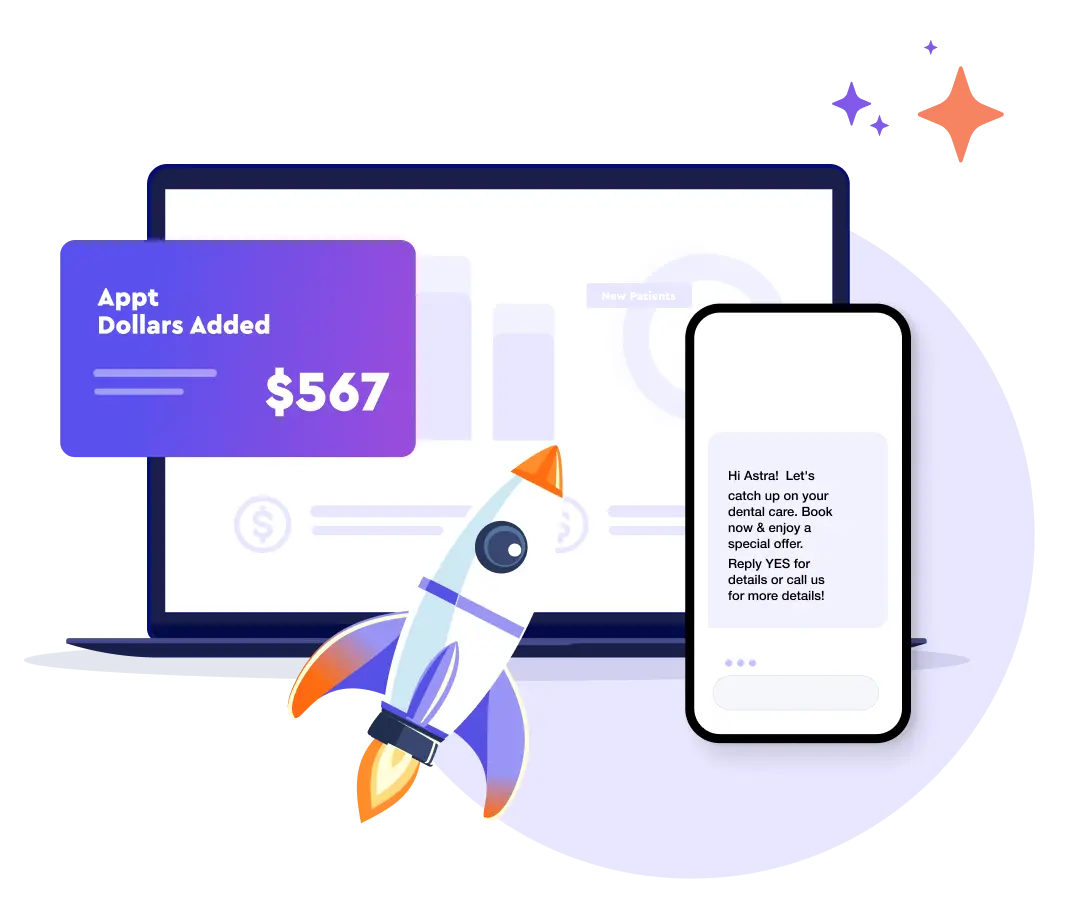What Are the Best Practices for Dental Scheduling Training?
Imagine this: a patient walks into your office for a routine cleaning, but due to a scheduling error, their appointment is double-booked with another patient.
Unfortunately, both patients are frustrated, the team is scrambling, and the day's flow is disrupted. Nevertheless, with proper scheduling practices, this situation can be easily avoided. As someone working in a dental office, you know that a well-organized schedule is essential for smooth operations and happy patients. But how do you ensure your team can handle it all efficiently? In this blog, we'll explore the best practices for dental scheduling training, helping you create a smooth scheduling system that improves patient care and team productivity. Let's quickly dive into how the right training can prevent chaos and keep things running smoothly.Why is Dental Scheduling Training Important?
As a dentist, you know that even a tiny mix-up can throw off the entire day, causing stress for the team and patients. Thus, dental scheduling training is crucial. It directly impacts your daily workflow—ensuring that every appointment is seamlessly managed, from the first phone call to the final treatment.
Benefits of Dental Scheduling Training

Time is a valuable resource—every minute in your practice matters. The benefits of dental scheduling training go beyond keeping a calendar—effective scheduling transforms how your office operates, both in the short term and in the long term.
Here's how mastering scheduling can make a real difference:1. Maximizing Resources
Picture this: you have a patient scheduled for a routine cleaning, and right after that, you have a larger procedure that requires more specialized equipment. Without efficient scheduling, you could end up with staff standing idle while waiting for that equipment to be prepped, or worse, double-booking appointments and delaying the bigger procedure. With proper training, your team can ensure that patient flow is balanced, staff is engaged, and equipment is always ready when needed. For example, if a hygienist's schedule is perfectly synced with the dentist's availability, there's no wasted downtime, and everyone can make the most of their day.2. Accurate Appointment Setting
Let's say a patient comes in for a filling. You know from experience that this procedure usually takes around 45 minutes, but your team might give it an hour to be safe without proper scheduling. The result? You end up overbooking and forcing another patient to wait longer than necessary.
With proper scheduling training, your team can accurately estimate the time needed for different procedures—no more guesswork. For example, if a crown preparation takes 90 minutes, you can confidently block off that time, ensuring the dentist isn't rushed and the next patient isn't kept waiting.3. Predictable Revenue Flow
magine your practice has a slow week with fewer appointments than usual. With a solid scheduling system, you can quickly spot gaps in your calendar and fill them rather than letting those empty slots go unnoticed.
For example, if the afternoons are generally slower, you might strategically book more prolonged procedures or offer promotions during those times to keep the schedule full. A predictable schedule means better financial forecasting, and with fewer missed appointment, you can confidently plan for payroll, overhead, and expansion without the guesswork.4. Reduced Cancellations and No-shows
Missed appointments can be a massive headache, especially when they happen repeatedly. If you've had a patient who frequently cancels or does not show up, you might have an empty chair during a busy day.
With proper scheduling training, you can proactively track patient history and send reminder calls or texts, reducing the chances of cancellations. For instance, you could set up automated reminders for patients who forget about their appointments, ensuring they're more likely to show up on time. Plus, if a cancellation happens last minute, your team can quickly fill that slot with someone else, avoiding revenue loss.5. Improved Patient Experience
Effective dental scheduling goes beyond smooth operations—it builds patient trust and loyalty. When appointments are well-managed and wait times are minimal, patients feel valued, strengthening their connection to your practice.
Personalized scheduling takes this further. You create a seamless experience that fosters meaningful relationships by accommodating patients' unique needs and preferences. Meeting patient expectations for hassle-free care leads to satisfaction, which drives repeat visits and referrals. Ultimately, this grows your practice and solidifies its reputation.What Are the Roles and Responsibilities in Dental Scheduling?
Effective dental scheduling isn't just about training but also about defining clear roles and responsibilities. Key positions like the Dental Scheduling Coordinator and Dental Office Manager are vital in streamlining the process.
1. Dental Scheduling Coordinator
The Dental Scheduling Coordinator is essential to a smooth-running office. They manage patient interactions, schedule appointments, track appointments, send reminders via email, and handle patient information. They also ensure new patients are given the right time slots to meet their needs, creating a hassle-free experience. Here is a quick snapshot of the responsibilities of the scheduling coordinator:| Task | Purpose |
|---|---|
| Appointment scheduling | To manage new and existing patient appointments |
| Patient Communication | To provide information regarding dental procedures, timings, and payments |
| Patient Information | To collect and update patient data, including their treatment needs and insurance details |
| Sending Reminders | To ensure patients are reminded of upcoming appointments to minimize no-shows |
2. Dental Office Manager
The Dental Office Manager oversees daily operations, ensuring the scheduling system drives efficiency and revenue. They also create a supportive staff environment and a seamless patient experience, contributing to the practice's growth.
The roles of a Dental Office Manager with respect to scheduling are detailed below:| Task | Purpose |
|---|---|
| Overseeing Operations | To ensure the dental practice runs smoothly |
| Scheduling Supervision | To confirm the efficiency of the scheduling system |
| Achieving Goals | To guarantee that scheduling helps to meet production and revenue objectives |
| Creating a Supportive Environment | To ensure both patients and staff are comfortable, hence contributing to the overall growth |
What Are Some Best Practices for Dental Scheduling Training?

Effective dental scheduling goes beyond filling slots—it's about implementing strategies that boost efficiency and patient care. With block scheduling, clear roles, reduced no-shows, and strong communication, you can streamline operations and enhance patient satisfaction. Let's examine these practices.
1. Reviewing Block Scheduling
Block scheduling is like creating a roadmap for your day, where every minute counts. Here's how it works:
- Breaking Down Time: Let's say you have 10 different treatments in a day. Instead of juggling them randomly, block your time—2-hour slots for complex or specific types of procedures like crowns, 30-minute blocks for quick fillings, and 1-hour slots for routine cleanings. You can even book 90-minute slot for an implant and only 30 minutes for a checkup, keeping things running smoothly.
- Primary and Secondary Care: Larger procedures like tooth extractions need larger time slots. For example, you could allocate a 2-hour block for surgical procedures. Meanwhile, quick fillings can fit in smaller 30-minute blocks, allowing additional new patients or shorter consultations.
- Flexibility: Life happens! You may need to accommodate an emergency or a patient who needs a longer time. With block scheduling, you can leave gaps or hold some slots open till 24-48 hours before the appointment. For instance, a crown prep might need an unexpected 30 extra minutes. Flexibility allows you to adjust without chaos.
- Balancing Patient Load: If one hour is packed with five cleanings back-to-back and the next hour is empty, this causes rushed or idle periods. Block scheduling ensures you're evenly distributing procedures across the day, for example, scheduling two 30-minute cleanings in the morning and an hour for a consultation, ensuring a steady pace.
2. Setting Production and Revenue Goals
Scheduling with a focus on your practice's growth goals isn't just brilliant; it's necessary. Here's how to implement it:
- Identify Revenue Drivers: In your practice, high-ticket procedures like cosmetic dentistry or Invisalign might generate the bulk of your revenue. Prioritize these in the schedule during peak hours. For instance, schedule 3-hour blocks on weekdays for smile makeovers when your patient base is most likely to afford such services.
- Balanced Approach: While revenue-generating treatments matter, don't neglect essential care. For example, while you may want to schedule your biggest cases, like implants, in prime times, you'll also want to fill the rest of the day with cleanings, which keeps your schedule efficient without sacrificing patient care.
- Performance Tracking: Track revenue at the end of each month. For example, if you planned to generate $10,000 this month and you're falling short, review the treatment types in the schedule. Did you miss filling enough high-revenue slots like root canals or orthodontics?
- Patient Satisfaction: Keeping patients satisfied with great service drives them to return. If they feel rushed for a procedure like a deep cleaning, they might not return. Offering enough time for each procedure ensures a better experience and encourages patient loyalty.
3. Reducing No-Shows and Wait Times
No-shows and wait times can cost your practice significantly. Here's how to minimize them:
- Send Reminders: Let's say a patient books a crown procedure for next week. Send a reminder two days before and one a few hours before. For example, a 2 p.m. appointment reminder at 12 p.m. can prompt patients to confirm or reschedule, freeing up time if they need to cancel.
- Waitlist: Let's say a patient cancels last minute. Having a waitlist ready ensures you don't lose time. Call someone from the list who needs an urgent cleaning or follow-up so that spot is not wasted.
- Clear Communication: Ensure patients understand your policy. For instance, "If you cancel within 24 hours, there will be a $50 fee" keeps them aware of the consequences. You can even consider offering a grace period for first-time offenders but consistently apply the rules to avoid confusion.
- Block Scheduling and Fill-ins: With block scheduling, keep a slot open for short follow-up procedures that could be added at the last minute. For instance, if there's an unexpected cancellation after a one-hour filling, slot in a quick checkup or consultation to keep that time productive.
4. Prioritizing Customer Service and Communication
Excellent customer service builds long-term patient relationships. Here's how to keep your communication top-notch:
- Handling Inquiries: Let your staff confidently handle questions. For example, if a patient calls asking about dental implants, they should know precisely how long the procedure takes, the recovery period, and the cost breakdown. A well-informed staff member sets the tone for a trusting patient relationship.
- Proactive Communication: If there's a delay, notify patients beforehand. For example, if a procedure is running 15 minutes behind, a quick call or text can make all the difference. A simple "We're running slightly behind, but we'll get to you shortly" keeps patients calm and reduces frustration.
- Follow-Up: Follow up after a root canal or teeth whitening procedure to ensure satisfaction. You can ask, "How are you feeling?" or "Would you recommend us to friends?" Feedback is an excellent tool for continuous improvement and shows you care about patient experience
Practice by Numbers: Smarter Dental Scheduling Training for a More Productive Practice
Struggling with last-minute cancellations, overbooked days, or gaps that hurt your bottom line? Perhaps, you feel doing everything that is mentioned in this blog is time-consuming? So why not automate it by taking help from Practice by Numbers?
Practice by Numbers is the only all-in-one dental software that will help your dental teams master scheduling training with data-driven strategies that eliminate inefficiencies and keep your appointments running smoothly. With our premium hardware, enjoy features like PbN Voice for easy phone setup and PbN Payments for customized payment solutions. Moreover, we don’t believe in one-size-fits-all solutions. Practice by Numbers tailors scheduling training to your practice’s unique needs, helping your team gain control over appointments, increase productivity, and boost profitability. With smarter scheduling, you can improve patient experience, enhance staff efficiency, and grow your practice—all without the daily scheduling chaos. Ready to transform the way you manage appointments? Book a Demo with us to make the difference!Conclusion
In a dental practice, exceptional care is just one piece of the puzzle—efficient online scheduling makes it all run smoothly. Effective scheduling exceeds filling time slots; it optimizes resources, reduces no-shows, and enhances patient satisfaction as well.
Investing in scheduling training isn't just a minor tweak; it's a strategic move that ensures long-term success. It also strengthens your practice's foundation, improves patient retention, and boosts profitability. Remember that a well-trained scheduling team is the key to a thriving practice.Frequently Asked Questions
How can I improve my dental office scheduling?
Enhance your dental office scheduling by implementing a block scheduling system, setting clear roles and responsibilities, reducing cancellations, prioritizing customer service, and using technology for scheduling automation.
What degree do you need to be a dental office manager?
Being a Dental Office Manager doesn't specifically require a degree. However, having an associate or bachelor's degree in healthcare administration, business management, or a similar field can be advantageous. In addition, practical knowledge about dental procedures and experience in managing a dental office can be beneficial.
What does a dental scheduler do?
A dental scheduler, often including dental assistants, organizes and manages patient appointments. They are responsible for setting appointments, sending reminders, ensuring timely patient visits, and coordinating with other dental staff to create an efficient schedule that optimizes practice productivity and patient care.
What are the key components of effective dental scheduling training?
Key components of effective dental scheduling training include training on block scheduling techniques, clear division of roles and responsibilities, strategies to reduce no-shows and wait times, a focus on excellent customer service, and usage of advanced technologies for scheduling and reminders to ensure productive days.




